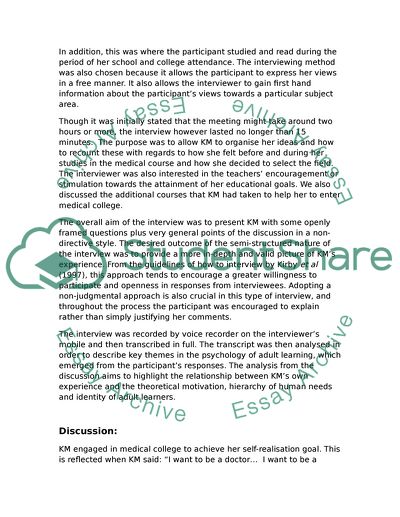Cite this document
(“The Psychology of Adult Learning Case Essay Example | Topics and Well Written Essays - 1250 words”, n.d.)
The Psychology of Adult Learning Case Essay Example | Topics and Well Written Essays - 1250 words. Retrieved from https://studentshare.org/education/1595697-the-case-study-essay
The Psychology of Adult Learning Case Essay Example | Topics and Well Written Essays - 1250 words. Retrieved from https://studentshare.org/education/1595697-the-case-study-essay
(The Psychology of Adult Learning Case Essay Example | Topics and Well Written Essays - 1250 Words)
The Psychology of Adult Learning Case Essay Example | Topics and Well Written Essays - 1250 Words. https://studentshare.org/education/1595697-the-case-study-essay.
The Psychology of Adult Learning Case Essay Example | Topics and Well Written Essays - 1250 Words. https://studentshare.org/education/1595697-the-case-study-essay.
“The Psychology of Adult Learning Case Essay Example | Topics and Well Written Essays - 1250 Words”, n.d. https://studentshare.org/education/1595697-the-case-study-essay.


